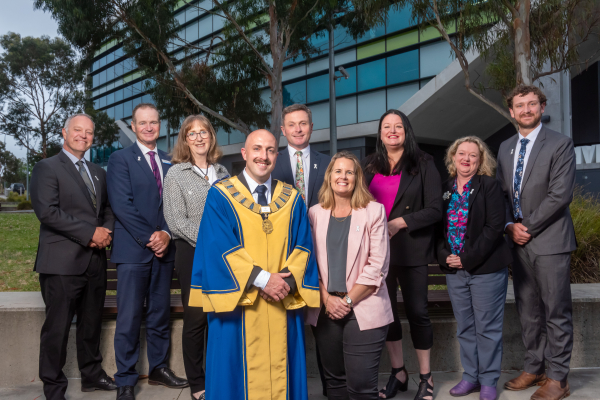The Albanese Government has announced funding of $377.3 million over four years, with $98.4 million ongoing to make patient access more affordable under the Pharmaceutical Benefits Scheme (PBS) Opioid Dependence Treatment program (ODTP). An historic change to medicines access for these patients, the investment highlights the financial burden patients have endured for many years. As the system moves to end the discrimination against these patients, Better Access Australia restates its call for an Inquiry into how this was allowed to go unaddressed for so long. |
“Better Access Australia welcomes the Albanese Government’s recognition of the financial discrimination perpetrated against patients accessing medicines to treat opioid addiction on the Pharmaceutical Benefits Scheme (PBS). Chair of Better Access Australia Felicity McNeill PSM said.
“Whilst no details behind the measure have been provided, the Government’s recognition that patients accessing the PBS Opioid Dependence Treatment program (ODTP) have been denied the same protections of the PBS safety net, co-pay and staged supply programs as other patients is a long overdue reform that must be embraced for the landmark change it represents.
“We thank Minister Butler for taking action to resolve an injustice his department has known about since at least 2019, but in reality has been aware of since the 1990s.
“We cannot thank enough Senators Pocock and Steele-John and former Senators Siewert and Fierravanti-Wells and the Scrutiny of Delegated Legislation Committee for their work from 2019 to today to ensure this issue was a priority of the Department of Health and Aged Care and no longer swept under the carpet. Ms McNeill acknowledged.
“In particular, we acknowledge the legislative reforms of Senators Pocock and Steele-John in 2022 placing a deadline on the Department to act and end its four-year obfuscation on this issue since a Freedom of Information request by local Canberra pharmacist, Jason Northwood was released.
“The significant investment required to place ODTP patients on an equal footing with patients managing diabetes, cancer, heart disease, and mental health highlights to the community just how much these patients have financially suffered each and every year.
“The significant investment highlights why multiple coronial inquiries found that these likely unlawful fees contributed to the deaths of too many people in our community. Too many people’s mums, dads, daughters, sons, work colleagues and partners lost to an insidious disease because the PBS didn’t give them the equal access it delivers to every other patient under law.
“We look forward to receiving the details of what this means for the PBS co-pay and dispensing fees on these drugs because as we know from the Government’s implementation of its Newborn Screening Program – the devil is always in the detail.
“In the meantime, Better Access Australia stands firm in its efforts to ensure that not only is this unlawful discrimination finally corrected from 1 July 2023, but that restitution is made and an apology issued to those who suffered financially, emotionally and physically before 1 July.
“Consequently, we have written to the Senate Community Affairs Reference Committee asking that an inquiry into the administration of the ODTP be undertaken to ensure that this level of discrimination never occurs again in any program. Too many people have suffered, too many lives have been lost. We must do better.
“But today as we also focus on next steps, we stop to recognise the courage and long-standing work of groups such as Harm Reduction Australia, and individuals such as Annie Madden AO, and Leah McLeod who have shared their stories time and time again to try and make a difference for others.
“The long overdue reform of the PBS Opioid Dependence Treatment Program is theirs, this change for others is because of them, the fact no other group will likely have to endure such levels of stigma, discrimination, and financial disadvantage to access their healthcare, is because of their work and courage. Ms McNeill concluded.
Key Facts:
- Approximately 53,000 people currently accessing PBS ODTP medicines. Another 100,000 don’t access treatment.
- Three Australians die every day from opioid dependence, many because they cannot afford treatment as confirmed in multiple coronial inquests.
- All diseases and medicines, except those on the ODTP, are protected by PBS co-payments and safety net arrangements under the .
- Only medicines used in the treatment of opioid dependence have an administration policy in place to set aside these protections and as a result pharmacists are also not paid to dispense.
- Instead, the Government through a non-legislative instrument allows pharmacists to charge uncapped administration fees for dispensing ODTP medicines: These can be up to $200 a month. In contrast:
- a diabetes, MS, cancer or heart disease medicine costs a patient no more than $7.50 or $30 per month and the cost counts towards their PBS safety net.
- The Government pays a community pharmacy the following fees to dispense a non-ODTP medicine: ~7.52% wholesaler fee; a dispensing fee of $7.82; a dangerous drug fee of $4.84 (where approp); and the administration and handling fee of $4.32 to $16.96 based on the cost of the medicine.
- The Federal Court has confirmed that dependence on opioids (such as methadone or heroin) is a disability under the (Cth) .
- The concluded in August 2021 that the ODTP non-legislative instrument would likely be found unlawful by a Court.
- The Staged Supply Program which allows for gradual dispensing of a monthly script to improve compliance, reduce risks of addiction and diversion specifically precludes ODTP medicines. This program pays pharmacists $8.12 for dispensing on the first day of each new script or repeat script and $4.12 for each day thereafter a portion of that script is dispensed to the patient.
- Conversely, ODTP patients pay $5 a day out of pocket to have their medicines supplied under staged supply.
- Better Access Australia has estimated that ODTP patients have been charged in excess of $350M to access their medicines since the Department of Health became aware of the unlawfulness of the current non-legislative ODTP Instrument in 2019. This is consistent with new funding announced by the Government in the 2023-24 Budget
About us:
Better health, disability and social services. .








